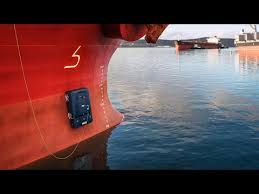
Breaking News
We Americans Need to Dig Deep into Historical Perspective
 A timeless clip of Michael Burry explaining how he used credit default swaps...
A timeless clip of Michael Burry explaining how he used credit default swaps...
 The next financial crisis won't start in a bank lobby. It's already brewing in the market
The next financial crisis won't start in a bank lobby. It's already brewing in the market
Top Tech News
 This tiny dev board is packed with features for ambitious makers
This tiny dev board is packed with features for ambitious makers
 Scientists Discover Gel to Regrow Tooth Enamel
Scientists Discover Gel to Regrow Tooth Enamel
 Vitamin C and Dandelion Root Killing Cancer Cells -- as Former CDC Director Calls for COVID-19...
Vitamin C and Dandelion Root Killing Cancer Cells -- as Former CDC Director Calls for COVID-19...
 Galactic Brain: US firm plans space-based data centers, power grid to challenge China
Galactic Brain: US firm plans space-based data centers, power grid to challenge China
 A microbial cleanup for glyphosate just earned a patent. Here's why that matters
A microbial cleanup for glyphosate just earned a patent. Here's why that matters
 Japan Breaks Internet Speed Record with 5 Million Times Faster Data Transfer
Japan Breaks Internet Speed Record with 5 Million Times Faster Data Transfer
 Advanced Propulsion Resources Part 1 of 2
Advanced Propulsion Resources Part 1 of 2
 PulsarFusion a forward-thinking UK aerospace company, is pushing the boundaries of space travel...
PulsarFusion a forward-thinking UK aerospace company, is pushing the boundaries of space travel...
 Dinky little laser box throws big-screen entertainment from inches away
Dinky little laser box throws big-screen entertainment from inches away
 'World's first' sodium-ion flashlight shines bright even at -40 ºF
'World's first' sodium-ion flashlight shines bright even at -40 ºF
Aquatic robot crawls hulls to brush off barnacles

The growth of marine organisms on ship hulls is known as biofouling, and it poses a couple of key problems.
First and foremost, by adding a rough living coating to the hull, it keeps ships from smoothly cutting through the water. This means that their engines have to work harder in order to maintain a given speed, thus using more fuel and producing more exhaust. Additionally, the introduction of invasive, non-native species may occur if organisms latch on in one geographical location and then reproduce in another.
With these issues in mind, Norwegian company Jotun has collaborated with Swedish tech firm Semcon – along with other partners – to develop its Hull Skating Solutions system.

 The AI money machine!
The AI money machine!

